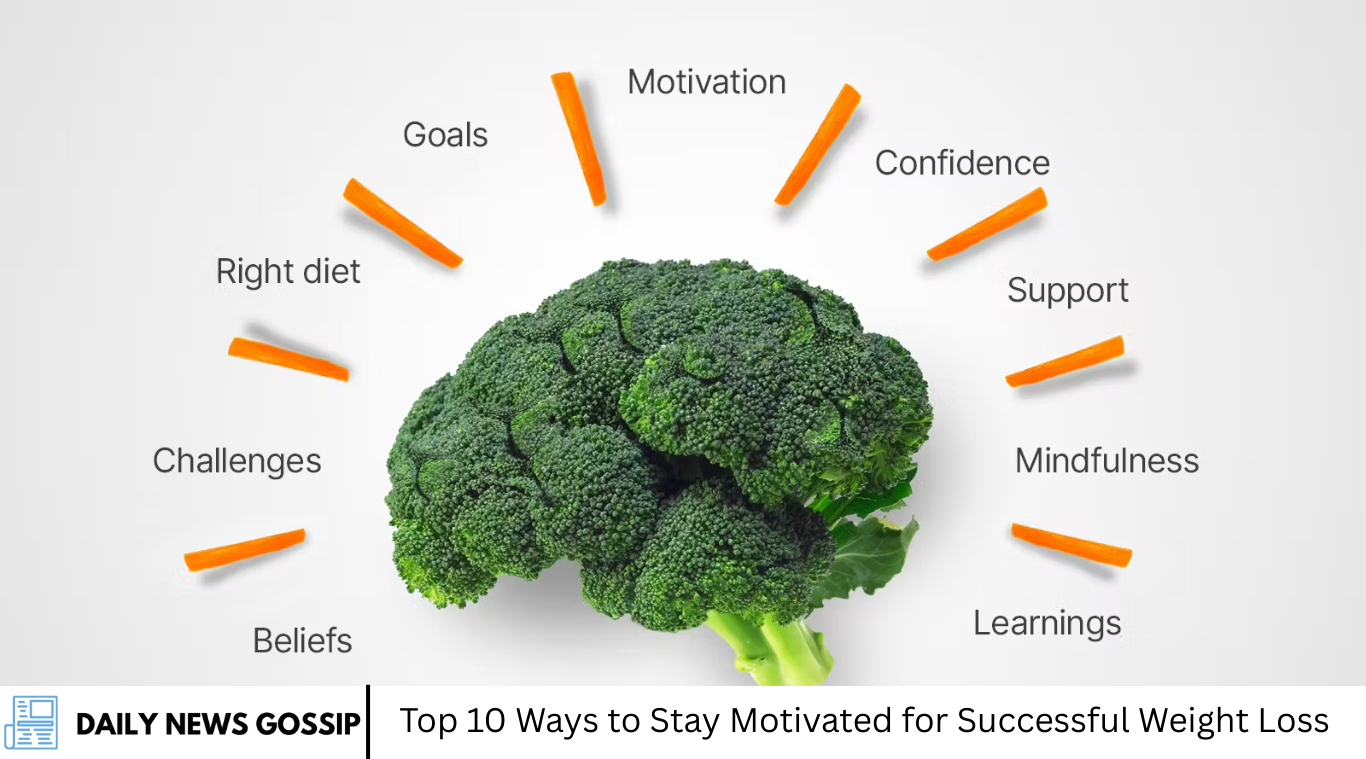Weight loss is a journey that often comes with many challenges, including maintaining motivation over time. While setting goals and starting a healthy routine can be exciting, sustaining that motivation is the key to long-term success. Without motivation, it’s easy to fall off track, lose momentum, or become discouraged by slow progress.
This article delves into the top 10 proven ways to stay motivated throughout your weight loss journey. By understanding what drives motivation and applying these strategies, you’ll be better equipped to overcome obstacles and achieve your weight loss goals.
Set Clear, Realistic Goals
Why Goals Matter
Clear and achievable goals provide direction and a sense of purpose. They help break down a large journey into manageable milestones, making the process less overwhelming.
How to Set Goals
- Use the SMART framework (Specific, Measurable, Achievable, Relevant, Time-bound).
- Instead of vague goals like “lose weight,” try “lose 1-2 pounds per week for three months.”
- Set both short-term and long-term goals.
Track Your Progress
Benefits of Tracking
Monitoring your progress reinforces motivation by showing tangible results. It also helps identify what works and what doesn’t.
Methods to Track
- Use apps or journals to log weight, food intake, exercise, and mood.
- Take photos and body measurements regularly.
- Celebrate small wins along the way.
Find a Support System
The Power of Community
Having support can increase accountability and provide encouragement when motivation dips.
Ways to Build Support
- Join weight loss groups or fitness classes.
- Involve family and friends.
- Seek professional guidance from coaches or nutritionists.
Create a Routine and Stick to It
Why Routine Helps
Consistent habits reduce decision fatigue and make healthy choices automatic.
Tips to Build Routine
- Schedule workouts and meal prep in your calendar.
- Prepare healthy meals in advance.
- Aim for regular sleep patterns to support metabolism.
Focus on Non-Scale Victories
Beyond the Numbers
Weight is just one measure of progress. Recognizing other benefits helps maintain motivation.
Examples of Non-Scale Victories
- Increased energy levels
- Improved mood and mental clarity
- Clothes fitting better
- Enhanced physical strength and endurance
Reward Yourself (Without Food)
Positive Reinforcement
Celebrating achievements reinforces behavior and keeps motivation high.
Healthy Reward Ideas
- Buy new workout gear
- Enjoy a spa day or massage
- Take a day trip or fun activity
- Treat yourself to a movie or book
Visualize Your Success
Power of Visualization
Imagining your future healthy self can boost motivation and help you stay focused.
How to Practice
- Spend a few minutes daily picturing your goals and how you will feel.
- Create a vision board with inspiring images and quotes.
Keep Learning and Adapting
Stay Informed
Understanding nutrition, fitness, and behavior change keeps your approach fresh and effective.
How to Keep Learning
- Read books and articles.
- Follow credible health experts.
- Experiment with new workouts and recipes.
Manage Setbacks Positively
Expect Challenges
Weight loss is rarely linear. Setbacks don’t mean failure—they are part of the process.
How to Manage Setbacks
- Reframe mistakes as learning opportunities.
- Avoid all-or-nothing thinking.
- Reassess and adjust goals if needed.
Cultivate a Positive Mindset
Importance of Mindset
A positive attitude supports resilience and long-term adherence.
Ways to Foster Positivity
- Practice gratitude daily.
- Use affirmations to reinforce your worth and ability.
- Surround yourself with encouraging people and environments.
Frequently Asked Question
How long does weight loss motivation usually last?
Motivation varies by individual but often peaks in the first few weeks. Sustained motivation relies on habits and mindset.
What if I lose motivation completely?
Take a break, reflect on your why, reset goals, and seek support to reignite motivation.
How important is tracking progress?
Tracking helps maintain awareness, celebrate wins, and adjust your approach effectively.
Can support from friends and family really impact weight loss?
Yes, social support provides accountability, encouragement, and shared experiences.
What are some good non-food rewards?
Consider hobbies, self-care activities, or small purchases that reinforce your commitment.
How do I stay positive during setbacks?
Accept setbacks as normal, focus on progress made, and reframe challenges as growth opportunities.
Is visualization scientifically proven to help with weight loss?
While more research is needed, visualization can enhance motivation and goal adherence by reinforcing positive mental imagery.
Conclusion
Staying motivated for weight loss requires intentional strategies and self-awareness. By setting clear goals, tracking progress, seeking support, and maintaining a positive mindset, you can navigate challenges and keep moving forward. Remember that motivation fluctuates naturally; what matters is your commitment to consistently take steps toward your healthier self.

